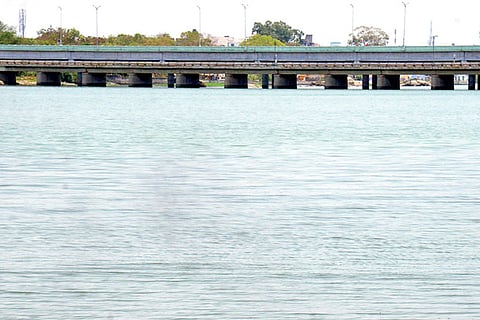

Coimbatore
This river, which often becomes a talking point for the never-ending water-sharing dispute between Tamil Nadu and Karnataka, has currently taken the course of self-cleaning.
Thanks to the nationwide lockdown to curb the spread of COVID-19, the discharge of effluents into the river from illegal dyeing, bleaching and other industrial units has stopped completely. The hazardous effluent discharged into the water body by Karnataka, where it originates, also seems to have stopped causing the levels of pollution to drop significantly.
“The total dissolved solids (TDS) levels have come down by a huge extent from a staggeringly high 600 TDS to a meagre 220 TDS in the water samples tested at BhavaniKooduthurai area in the Erode district a few days ago. Similarly, at Vendipalayam, the pollution level was measured to be around 230 TDS.
This is an indicator that the water flowing down the river has got purified since effluents didn’t flow into the river over the last 10 days.Still, the impurities already mixed in the water continue to exist and they may run away, if the flow increases,” said an official with the Tamil Nadu Pollution Control Board. Until some three decades ago, the water used to be crystal clear sans any impurities.
“Things are getting better now as the quality of water has improved on a stretch in the Bhavani, but again turn greenish in colour at Vendipalayam barrage, where the water gets stored for generating hydro-electric power. Lakhs of farmers in Western and delta region are dependent on the water for their farming and drinking needs,” said R Kandavel, a farmer.
Erode District Environmental Engineer G Udhayakumar said that the TNPCB has been taking stringent action against industries illegally letting effluents into the Cauvery. Out of the total 60 wards in Erode district, only 19 wards have underground drainage system and they too are incomplete without household connections.
“Drainage generated from houses, hospitals and commercial establishments in the 41 wards run into river Cauvery polluting the water body. The water will get completely purified only if flow of sewage from residential areas is stopped. Water samples will be tested again during the end days of the lockdown,” he added.
Visit news.dtnext.in to explore our interactive epaper!
Download the DT Next app for more exciting features!
Click here for iOS
Click here for Android